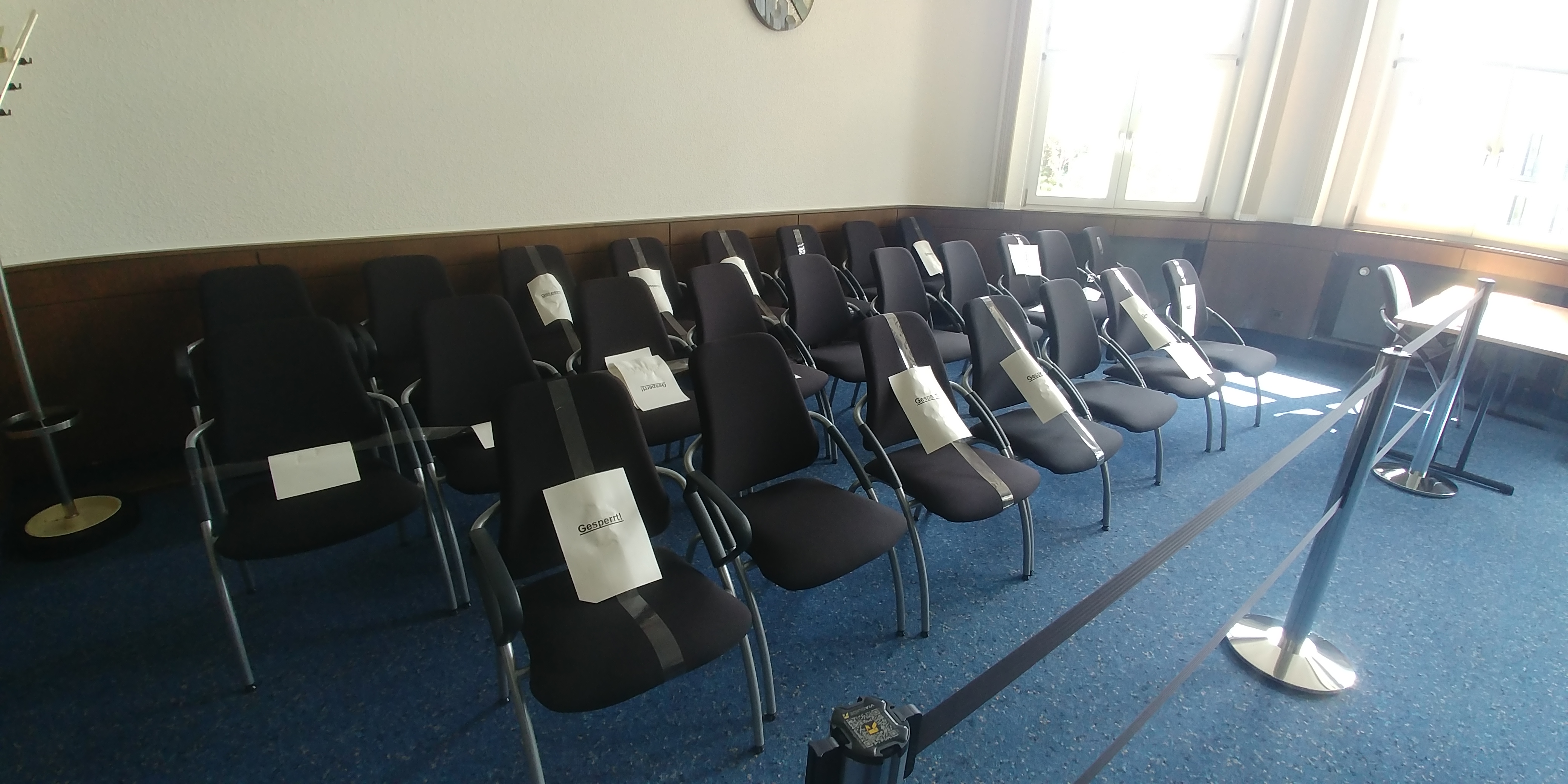The Covid-19 pandemic has arrived in all areas of economic and social life. It also continues to have a firm grip on the judiciary. The ambitious goal of ensuring legal protection in times of Corona cannot be achieved everywhere, especially since courts and public prosecutor's offices were hardly prepared for the crisis. It is only possible to continue working, if at all, with significant restrictions. In order to mitigate the consequences of the crisis, the legislator has already initiated changes to the Code of Criminal Procedure as part of the Corona package of measures[1] so that trials no longer have to be abandoned due to interruptions and the cancellation of appointments. It is to be observed that criminal and fine proceedings are now again taking place in court that are not urgent. This means that the relaxation measures have also been taken up by the judiciary. However, the effects of the Covid-19 pandemic can still be felt at the local and regional courts, whether it be notices regarding necessary hygiene measures and social distancing, disinfectant dispensers set up at the entrance, or barriers blocking off spectator seats in the courtrooms.
Significance of the principle of public access to court proceedings
The public nature of the proceedings guarantees due process. The purpose of the procedural maxim is primarily to enable the general public to monitor the course of the proceedings. [3] It is an important democratic principle in German law, which states that both the trial and the pronouncement of judgment must be open to the public. Unfortunately, it has been observed that the principle of openness is being violated in times of the Covid-19 pandemic.
In some district court summonses, it is stated that one should"only enter the district court in absolutely necessary cases – for example, if summoned to an appointment." In this way, one helps to avoid the risk of infection as much as possible.[5] Since potential visitors may be deterred by this text even if they are not suspected of having the disease or having been to a risk area, and are asked to "only enter the court in absolutely necessary cases," this constitutes a violation of the principle of openness pursuant to Section 169 I S. 1 of the German Court Constitution Act (GVG), especially since attendance by interested parties at a main hearing is never "absolutely necessary". Furthermore, it seems questionable whether the principle of public proceedings can/could be complied with at all in times of the lockdown, because it is no longer possible for interested parties, in particular from Bavaria, to attend court hearings. The principle of the public nature of the main hearing also applies in judicial fine proceedings in principle via §§ 46 OWiG, 169 p. 1 GVG.

Procedural errors in the event of violations of the principle of public proceedings
If the defense believes that the proceedings were not public, the procedural objection must be raised in the context of an appeal in criminal matters or an appeal in the case of administrative offenses, [7] which must meet the strict requirements of § 344 II 2 StPO (in conjunction with Section 79 III OWiG) must be met. According to Section 338 No. 6 StPO, there is even an absolute ground for appeal. According to the will of the legislature, the judgment should always be based on the procedural error in this case. 8] However, if the courtroom is full, the judge risks making a procedural error and thus having his judgment set aside by the court of appeal for violating the principle of public proceedings if he wants to exclude interested parties on the grounds of an alleged risk of infection. Pursuant to section 172 of the GVG, the court may exclude the public from the proceedings or part of the proceedings only if there is a risk to public order or to life or limb. A general exclusion of the public from criminal court proceedings is not possible. Limiting the number of people present in the courtroom seems problematic, at least in the event that not all members of the public who are interested in attending are allowed to be present. In some places, 25 of the 30 seats in the courtroom are blocked, leaving just a handful of seats for the public. In comparable cases, the courts have ruled that the public is not guaranteed when the main hearing takes place in a tiny room with too few seats for listeners.[9] Furthermore, the question then arises as to which criteria are used to select the visitors to be admitted. As a milder measure, an appointment would usually have to be rescheduled.
Evidence:
[1] Law to Mitigate the Consequences of the Covid 19 Pandemic in Civil, Insolvency and Criminal Procedure Law, Federal Law Gazette 2020 Part I No. 14, dated March 27, 2020, p. 569.
[2] Fromm, ZWH 2020, 89 et seq.
[3] BVerfG, NJW 2002, 814.
[4] Kulhanek, NJW 2020, 1183; Fromm, DAR 2020, 251 et seq.
[5] https://agko.justiz.rlp.de/de/startseite/ (as of April 2020).
[6] Higher Regional Court Saarbrücken, NStZ-RR 2008, 50; Higher Regional Court Düsseldorf, NJW 1983, 2514; Higher Regional Court Cologne, VRS 62, 195; BayObLG, NJW 1956, 641.
[7] On this point, see Fromm, Verteidigung in Straßenverkehrs-OWi-Verfahren, 2014, p. 395.
[8] OLG Saarbrücken, NStZ-RR 2008, 50; OLG Celle, NZV 2006, 443.
[9] BayObLG NJW 1982, 395.
The statements represent initial information that was current for the law applicable in Germany at the time of initial publication. The legal situation may have changed since then. Furthermore, the information provided cannot replace individual advice on a specific matter. Please contact us for this purpose.